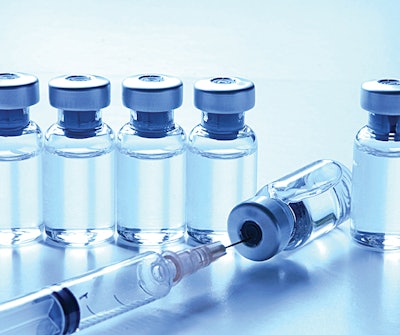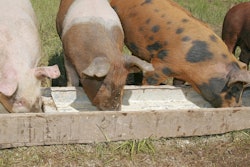
A new international collaboration led by European partners has been set up to develop a safe and effective vaccine for pigs against African swine fever (ASF).
Despite multiple approaches to research and development, widespread availability of proven safe and effective ASF vaccines for pigs remain elusive.
In Europe, the first meeting was held recently of an international consortium working on an innovative vaccine approach, reports Animals Health.
Known as VAX4ASF, the project is led by biotech firm Hipra, and supported by the European Union (EU) under its Horizon Europe program. Participating in the meeting were 17 partners from EU member states, as well as the International Livestock Research Institute (Kenya), Pirbright Institute (United Kingdom; U.K.) and Kansas State University (U.S.)
The first significant forward step in the development of an ASF vaccine was made in mid-2023, when Vietnam authorized the world’s first ASF vaccines.
3 European states report new cases in swine
Over the past week, new ASF cases in domestic pigs have been confirmed in Bosnia-Herzegovina, Romania and Serbia.
According to the Animal Disease Information System from the European Commission (EC; as of February 2), these nations registered an additional four, one and 10 outbreaks, respectively, compared with the edition dated January 27. The system monitors notifiable animal diseases in EU member states, and most adjacent countries.
Of the total of 41 outbreaks in this category for the year to date, Serbia has reported 19, and Romania 12. Other countries confirming outbreaks so far are Bosnia-Herzegovina (six), Ukraine (three) and Greece (one).
Official notifications by the national veterinary agencies to the World Organisation for Animal Health (WOAH) provide further details on recent outbreaks.
Over the past week, this information has been submitted only by Romania. There, outbreaks have been confirmed in two small backyard herds.
New cases widespread in Europe's wild boar
By February 2, the total number of ASF outbreaks in wild boar reported to the EC’s System had reached 837. Cases had occurred in 18 European countries monitored by the EC System, a figure unchanged from the previous update dated January 27.
Registering the most outbreaks in this category has been Poland (with a total so far in 2024 of 180), followed by Bulgaria (172), Italy (160), Lithuania (72), Latvia (68) and Hungary (56). With the exception of Bulgaria, all of these totals were higher than the previous edition. New cases had also occurred in Bosnia-Herzegovina, Estonia, Germany, Greece, Romania, Serbia and Slovakia.
Recording the most additional outbreaks with the EC was Italy with an increase of 43.
Since the first ASF outbreak on the Italian mainland in January 2022, official sources there put the total number of outbreaks in the wild population at 1,526 (as of February 7). Compared with January 19, this was an increase of 60. Totals for the provinces of Pavia (Lombardy region) and Genova (Liguria) increased by 30 and 24, respectively over this period.
Germany’s first ASF cases were reported in September 2020. As of February 5, the country’s total number of ASF-infected wild boar stood at 5,633, according to national veterinary agency, the Friedrich-Loeffler Institute. Of these, 23 were confirmed over the previous 28 days.
As of February 2, Poland had confirmed 155 ASF outbreaks in wild boar in 2024, according to the chief veterinary office. In the last week of January, cases were detected in five provinces.
The disease situation in Russia is not covered by the EC’s System. However, over the past week, WOAH was notified by the national animal health authority of six further ASF cases in wild boar. All were in the Voronezh region of the Central federal district.
View our continuing coverage of the global African swine fever situation.
















